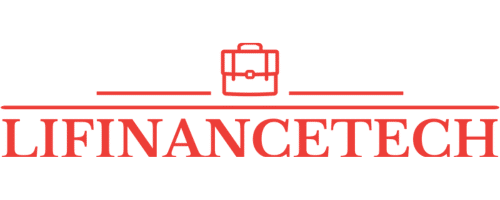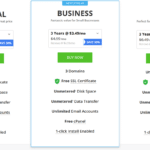
Are you worried about your website’s security? Want to protect your visitors’ data from unauthorized access?
Learn the essentials of website security measures in this article. You’ll discover the importance of SSL certificates, encryption, and HTTPS in safeguarding your website and its data. Find out how SSL certificates establish a secure connection and how HTTPS adds an extra layer of protection.
Stay one step ahead with these essential website security measures.
Key Takeaways
- Regular security audits help identify vulnerabilities and weaknesses in website security infrastructure.
- Implementing effective website security measures safeguards online presence and sensitive data.
- SSL certificates encrypt sensitive information for safe transmission.
- HTTPS uses SSL certificates to encrypt data transmitted between websites and users.
overview of cyber threats for websites
To protect your website from malicious attacks, it’s important to be aware of the various cyber threats that can compromise its security. Implementing effective website security measures is crucial in safeguarding your online presence and ensuring the protection of sensitive data.
One of the best practices for maintaining a secure website is conducting regular security audits. By conducting routine assessments, you can identify vulnerabilities and weaknesses in your website’s security infrastructure, allowing you to address them promptly.
Additionally, timely security patching is essential in preventing exploits and vulnerabilities from being exploited by cybercriminals.
Another important aspect of website security is the use of security monitoring tools. These tools help in detecting any suspicious activities or unauthorized access attempts. By monitoring your website’s traffic and server logs, you can identify potential threats and take appropriate actions to mitigate them.
Furthermore, automated security updates play a crucial role in maintaining the security of your website. Regularly updating your website’s software, plugins, and themes ensures that you have the latest security patches and bug fixes, reducing the risk of potential exploits.
How UI/UX can help you develop seamless and agile website- Read Here
Exploring SSL Certificates, Encryption, and HTTPS
Are you aware of the role SSL certificates play in data encryption?
SSL certificates are essential for securing the transmission of sensitive information on your website. By understanding HTTPS and its security benefits, you can ensure that your website is protected from potential cyber threats.
Implementing a Secure Socket Layer (SSL) is crucial for maintaining data integrity and safeguarding your users’ information.
1. Role of SSL Certificates in Data Encryption
Secure your website’s data with SSL certificates, which encrypt sensitive information for safe transmission. SSL certificates play a crucial role in data encryption, ensuring that the data exchanged between a user’s browser and your website remains secure and private.
This encryption process scrambles the data, making it unreadable to anyone intercepting it. By using SSL certificates, you can protect your customers’ personal and financial information, such as credit card details and passwords, from potential hackers.
Additionally, SSL certificates provide data integrity, assuring your users that the information they receive from your website hasn’t been tampered with during transmission.
When implemented correctly, SSL certificates enable HTTPS security, offering numerous benefits like improved search rankings, enhanced user trust, and protection against phishing attacks. Understanding HTTPS and utilizing SSL certificates are essential steps in safeguarding your website and ensuring the security of your users’ data.
2. Understanding HTTPS and Its Security Benefits
By understanding HTTPS and its security benefits, you can further enhance your website’s protection and ensure the safety of your users’ data.
HTTPS, or Hypertext Transfer Protocol Secure, is a protocol that uses SSL (Secure Sockets Layer) certificates to encrypt data transmitted between a website and its users. This encryption ensures that sensitive information such as passwords, credit card details, and personal data is securely transmitted and can’t be intercepted by hackers.
Implementing SSL certificates on your website provides an additional layer of security and instils trust in your users. It also helps protect against attacks by verifying the authenticity of the website and encrypting the data exchanged.
In addition to SSL implementation, other security measures such as firewall protection, regular website security audits, and secure data transmission through HTTPS should be implemented to safeguard your website and the valuable data it holds.
How AI can help you in data protection and compliance- Read Here
3. Implementing Secure Socket Layer (SSL) for Data Integrity
To ensure the integrity of your data, implement SSL certificates for secure socket layer encryption. SSL (Secure Socket Layer) is a protocol that provides a secure channel between your website and users’ browsers. It encrypts the data transmitted between them, making it difficult for hackers to intercept and decipher. By implementing SSL certificates, you can protect sensitive information such as usernames, passwords, and credit card details from falling into the wrong hands.
SSL/TLS (Transport Layer Security) implementation involves using data encryption techniques to secure your website. This ensures that the data transmitted between your server and users’ browsers remains confidential and tamper-proof. It creates a secure connection by using a combination of public and private keys to encrypt and decrypt data.
To effectively manage SSL certificates, it’s essential to follow SSL/TLS best practices. Regularly update your certificates to ensure that they’re valid and not expired. Implement a firewall security system to monitor and control incoming and outgoing traffic. Conduct routine security audits to identify vulnerabilities and address them promptly.
Implementing Firewalls and SSl
Now that you understand the importance of SSL/TLS for secure data transmission, it’s time to configure and manage firewall protection to further enhance your website’s security.
Firewalls act as a barrier between your website and potential threats, blocking unauthorized access and filtering out malicious traffic.
1. Configuring and Managing Firewall Protection
Ensure the proper configuration and management of firewall protection to enhance website security. A firewall acts as a barrier between your website and potential threats, monitoring incoming and outgoing traffic to block any unauthorized access. By configuring and managing your firewall effectively, you can significantly reduce the risk of cyber-attacks and protect your sensitive data.
To help you understand the importance of firewall configuration, here is a table highlighting three key aspects:
| Firewall Configuration | Description | Action |
|---|---|---|
| Access Control Lists | Determine which IP addresses are allowed or denied access to your website | Regularly review and update the lists to block suspicious IPs |
| Application Layer Firewalls | Analyze application-level protocols for potential threats and vulnerabilities | Configure rules to allow or deny specific traffic based on protocol |
| Intrusion Detection and Prevention Systems (IDPS) | Monitor network traffic for signs of intrusion and take immediate action | Regularly update the IDPS software and configure alerts for suspicious activity |
Is Hostinger worth considering for web hosting?- Read Here
2. Utilizing SSL/TLS for Secure Data Transmission
By utilizing SSL/TLS for secure data transmission, you can further enhance your website security measures and protect sensitive information from potential threats.
Secure Socket Layer (SSL) and its successor, Transport Layer Security (TLS), provide encryption and authentication protocols that ensure data integrity and confidentiality. The benefits of implementing SSL/TLS are numerous.
Firstly, it encrypts data during transmission, making it unreadable to unauthorized individuals. This protects sensitive information such as passwords, credit card details, and personal data from being intercepted and used maliciously.
Secondly, SSL/TLS verifies the identity of the website, assuring users that they’re connecting to the legitimate site and not a fraudulent one.
To effectively deploy SSL/TLS, you need to select a trusted SSL certificate provider, properly configure your server, and keep your SSL/TLS implementation up to date with security patches and updates.
3. SSL/TLS Deployment Best Practices
To implement effective SSL/TLS deployment best practices and enhance your website security measures, it’s crucial to incorporate firewalls and secure socket layers (SSL) into your overall security strategy.
Firewalls act as a barrier between your internal network and external threats, monitoring and controlling incoming and outgoing traffic. By implementing a robust firewall system, you can prevent unauthorized access and protect sensitive data.
In addition, SSL provides an extra layer of security by encrypting data transmission between the server and the user’s browser. This ensures that any information exchanged is protected from interception and tampering.
To further strengthen your security, it’s important to regularly conduct security audits, ensuring that any vulnerabilities or weaknesses are identified and addressed promptly. Additionally, keeping up with timely security updates and utilizing automated tools for security monitoring will help you stay one step ahead of potential threats.
Best Practices for Regular Security Audits and Updates
Regular security audits and updates are essential to maintaining the integrity and protection of your website. In today’s ever-evolving digital landscape, new threats and vulnerabilities emerge constantly, making it important to stay proactive in your security measures.
To ensure the highest level of security, it’s recommended to conduct security audits at least once every quarter. This frequency allows you to identify any potential vulnerabilities or weaknesses in your website’s security infrastructure. By conducting regular audits, you can stay ahead of potential threats and address any issues before they can be exploited.
In addition to regular audits, it’s crucial to keep your website updated with the latest security patches and updates. These updates often contain important security fixes that address known vulnerabilities. Neglecting to update your website regularly can leave it exposed to attacks and compromises.
To streamline the process, consider using automated tools for security monitoring and updates. These tools can help you identify vulnerabilities, track security events, and apply necessary patches automatically. By leveraging automation, you can save time and ensure that your website’s security is up to date.
Final words
In conclusion, prioritizing regular security audits and updates is crucial to safeguarding the integrity and protection of your website. Your website’s security isn’t a one-time task; it requires ongoing monitoring and maintenance to keep up with the ever-evolving threats in the digital landscape.
By conducting routine security audits, you can identify any vulnerabilities or weaknesses in your website’s defenses and take immediate action to address them.
Regular updates are equally important. Software developers are constantly releasing patches and updates to fix known security vulnerabilities. By keeping your website’s software, plugins, and themes up to date, you ensure that you have the latest security features and patches installed, reducing the risk of exploitation by cybercriminals.
To make the process more efficient, consider utilizing automated tools for security monitoring and updates. These tools can help you stay on top of security threats, alerting you to any suspicious activity or potential breaches. They can also automate the process of applying updates, saving you time and ensuring that your website is always protected.
Frequently Asked Questions (FAQ)
What Are the Most Common Cyber Threats That Websites Face Today?
The most common cyber threats websites face today include malware infections, phishing attacks, DDoS attacks, and SQL injections. It’s crucial to stay vigilant, regularly update security measures, and implement strong passwords to protect your website.
How Do SSL Certificates Work to Secure Website Data?
SSL certificates work by encrypting the data transmitted between your website and users. They ensure that sensitive information like passwords and credit card details are secured from hackers.
Can Firewalls and SSL Be Used Together to Provide Enhanced Website Security?
Yes, firewalls and SSL can be used together to enhance website security. By combining these measures, you can protect against unauthorized access and ensure the integrity and confidentiality of your data.
What Are Some Best Practices for Conducting Regular Security Audits on Websites?
Regular security audits on websites involve conducting comprehensive scans for vulnerabilities, assessing access controls, and checking for outdated software. Implementing automated tools and staying up-to-date with security patches are essential for maintaining a secure website.
Are There Any Additional Measures Beyond SSL and Firewalls That Should Be Taken to Ensure Website Security?
To ensure website security, in addition to SSL and firewalls, consider implementing regular security audits, timely patching, and automated tools for monitoring and updates. These measures will enhance your website’s protection against potential threats.







